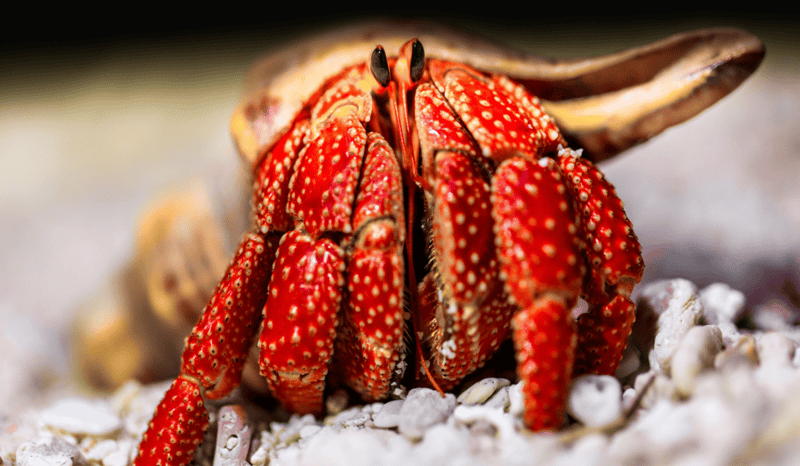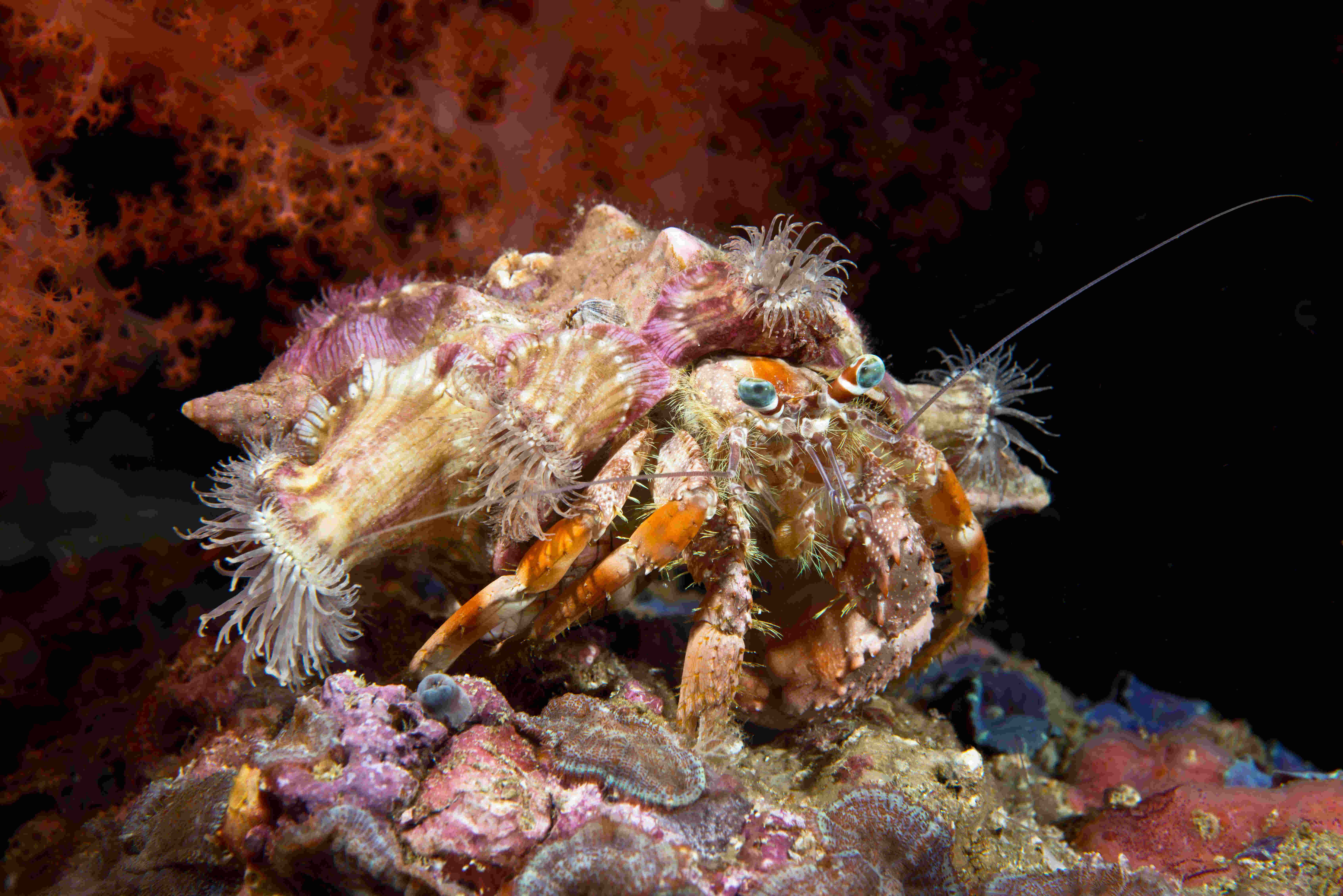
Hermit crabs are fragile, sensitive animals who belong in the wild, not pet stores or souvenir shops at the beach.
Hermit Crabs Aren’t Souvenirs
Anyone who has visited a beach souvenir shop has probably seen rows of hermit crabs in tiny, brightly colored tanks. Some hermit crabs’ shells are painted neon colors, and stores sell accessories like plastic palm trees and logs. Though they’re sold next to postcards and fridge magnets, hermit crabs aren’t souvenirs or trinkets.

Most hermit crabs live in the ocean, but a dozen species are semi-terrestrial. The pet industry brutally exploits these land hermit crabs. Far from a “starter pet,” hermit crabs require at least a 3-foot-long, 40-gallon tank with moist sand mixed with coconut fiber, pools of salt and fresh water, a heater to keep the temperature between 75 and 85 degrees, and a gauge to ensure the humidity stays between 70 and 80% in order to survive. Hermit crabs are very social, living in colonies of up to 100 individuals. In human homes, they’re usually kept alone. It’s no surprise that most hermit crabs die quickly in captivity. In the wild, they live for thirty years.
Hermit Crabs Suffer in the Pet Trade
Hermit crabs don’t reproduce well in captivity, so the hermit crabs you see in beach shops and big box pet stores like PetSmart are stolen from their beach homes and dumped into sacks. Then they’re transported to crowded warehouses before being shipped to pet stores. The Animal Welfare Act doesn’t protect hermit crabs, making them easy victims.
A whistleblower at Brelean Corporation, a hermit crab supplier to retailers like PetSmart and Petco, revealed the intense cruelty inside hermit crab warehouses. Workers cracked open living crabs’ shells, threw away living crabs mixed in with dead crabs, and kept crabs in pens so crowded that animals couldn’t eat or drink.
Bringing Hermit Crabs Into Our Circle of Compassion

As more people recognize that all animals—even the less cuddly ones—have feelings and unique personalities, laws are changing, too. The first law banning the sale of puppies in pet stores was enacted in Albuquerque, New Mexico, in 2006. In the two decades since, hundreds of cities and eight states have banned the retail sale of dogs and cats. In 2017, Cambridge, Massachusetts, became the first US city to pass a pet sales ban that included a wider range of species, including mammals, reptiles, amphibians, and birds. And, with your support, in September 2025 World Animal Protection and our allies moved compassionate legislators in West Hollywood, California, a step further, becoming the first US city to ban the retail sale of hermit crabs, in addition to mammals, birds, reptiles, amphibians, and fishes.
How You Can Protect Hermit Crabs
Feel inspired to protect hermit crabs? Take one of these steps.
- Your city could be the next to ban the retail sale of hermit crabs. Download our toolkit and learn how to pass a ban on the sale of animals in pet stores.